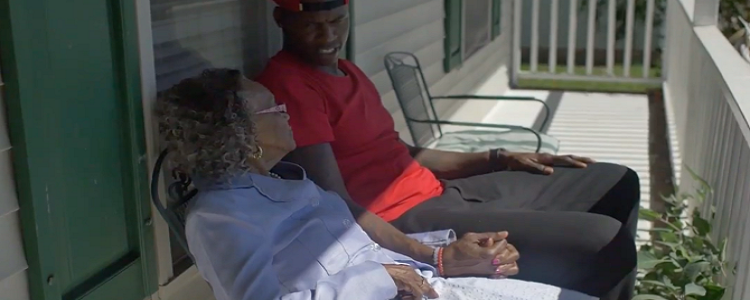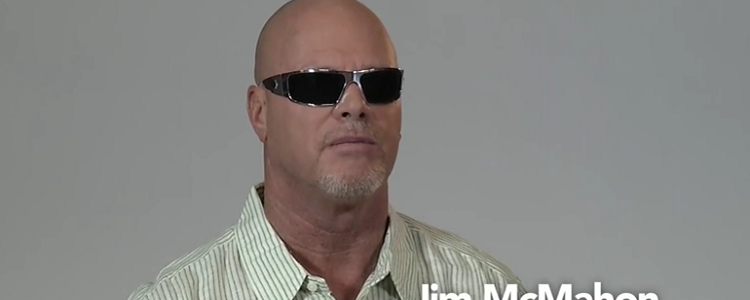Uncle Cliffy Cannabis On The 2016 Election
The 2016 election is in the history books, and what a historic election it was. Out of nine states that voted on recreational or medical cannabis legalization, eight of them were victorious! California, Nevada, Maine, and Massachusetts legalized recreational cannabis, and join Colorado, Washington, Oregon, Alaska, and Washington D.C. in doing so.
Arkansas, North Dakota, and Florida voted to legalize medical cannabis, with Montana essentially voting to legalize recreational cannabis for the second time. There are now 28 medical cannabis states in America, along with Washington D.C.. Arizona was the only state voting on cannabis reform (recreational legalization) that failed to pass. To be fair votes are still being counted in Arizona, but the initiative does not appear to be within striking distance of victory.
There are many NFL, NBA, and MLB teams located in states (and D.C.) that have voted to legalize recreational cannabis. Those states (and D.C.) and teams are:
California – Los Angeles Dodgers, Oakland Raiders, San Francisco Giants, Oakland A’s, Golden State Warriors, San Francisco 49ers, Los Angeles Lakers, Los Angeles Rams, San Diego Chargers, Los Angeles Clippers, Sacramento Kings, San Diego Padres, Anaheim Angels
Massachusetts – Boston Red Sox, Boston Celtics, New England Patriots
Oregon – Portland Trail Blazers
Washington – Seattle Seahawks, Seattle Mariners
Colorado – Denver Nuggets, Denver Broncos, Colorado Rockies
Washington D.C. – Washington Redskins, Washington Nationals, Washington Wizards
All of those teams are located in parts of America that have voted to end cannabis prohibition. However, if players from those teams are found to have cannabis in their system, they are harshly sanctioned. Why is that? Isn’t it time that the NFL, NBA, and MLB recognized the fact that an overwhelming majority of Americans (and with it, sports fans) support cannabis reform?
Cannabis is a much safer alternative to alcohol and pharmaceutical drugs, both of which are perfectly OK with the NFL, NBA, and MLB. The 2016 election was a referendum on prohibition in American society. So too should it be seen by league officials as a referendum on cannabis prohibition in sports. Sanctioning players for consuming a substance that is now legal in eight states and Washington D.C. is a bad policy not only for the players, but also for fans that want to see those players compete. Now is the time for current players to speak up, and join the growing list of retired professional athletes that want to see players be able to make the safer choice.
Retired NBA Player Al Harrington Supports Ending Cannabis Prohibition In California
Retired 16-year NBA veteran Al Harrington is featured in a powerful new video that just launched on TheRoot.com. In it Harrington describes the benefits he and his grandmother receive from using marijuana. Harrington also explains that he is a California voter, and he proudly announces, “I’m voting YES for Prop. 64” to legalize marijuana in California on Election Day this November.
“When I was young, I definitely did not smoke,” explains Harrington. “We always had that connotation that it was just bad for you, and then especially it was illegal. You felt that you would go to jail, so I stayed as far away from it as I could.”
However after suffering from a staph infection, Harrington was recommended medical marijuana and he benefitted greatly from it. Harrington’s grandmother, who suffers from glaucoma and diabetes, was resistant at first when her grandson suggested she try medical marijuana. After several conversations and dealing with such severe pain, she was willing to try it. Harrington recalls checking on his grandmother and hearing her say, “I haven’t been able to read the words of my bible in over three years. I’m healed.”
Harrington says that marijuana has “enhanced” his life. He explains, “I still wake up at 6:00 in the morning. I walk my dog and then I go straight to the gym. I work out hard for two hours and then I go to my office and work for the rest of the day.” Harrington is choosing to be part of the marijuana industry, which under Prop 64 includes licensing equity allowing small business owners to participate in it. And unlike previous legalization initiatives, a conviction does not automatically exclude a person from becoming licensed.
Proposition 64, or the Adult Use of Marijuana Act, is designed to allow the responsible use of marijuana by adults and establish a strict regulatory system to facilitate the transition to a legal market. Prop. 64 comprehensively addresses both medical and nonmedical use of marijuana, the regulation and licensing of businesses, taxation, revenue allocation and criminal penalties.
Harrington joins a strong coalition of Prop. 64 supporters including California Lt. Governor Gavin Newsom, the California Academy of Preventative Medicine, California Nurses Association and the California Medical Association — as well as a bipartisan group of federal, state and local elected officials, and an unprecedented coalition including environmental leaders, business owners, small farmers, civil rights groups, public safety experts and social justice advocates.
Source: Californians for Responsible Marijuana Reform press release
image via The Root
Super Bowl Champion Jim McMahon Campaigns For Cannabis Legalization
The Campaign to Regulate Marijuana Like Alcohol in Arizona will air a new TV ad in support of Prop. 205 during the Thursday Night Football matchup between the Chicago Bears and Green Bay Packers. It features Super Bowl champion quarterback Jim McMahon, an Arizona resident who began his career with the Bears in 1982 and ended it with the Packers in 1996. He also spent a season with the Arizona Cardinals.
The ad begins with McMahon describing his first major injury, which occurred during his second season. “That’s when I started using painkillers, and I was using them daily, pretty much the rest of my career,” he says. “It takes its toll. I was taking too many of those things.”
He then discusses how he “got rid of those” and has “been using marijuana ever since” he retired, moved to Arizona, and enrolled in the state’s medical marijuana program.
“Someone like me can afford to become a medical marijuana patient, but others aren’t so lucky,” he points out. “Marijuana should be available to all adults who need it. I’m voting ‘yes’ on Prop. 205 and hope you will, too.”
Most patients who qualify for Arizona’s medical marijuana program must pay $150 to receive a medical registry identification card, which must be renewed annually at a cost of $150. Many patients also need to pay for appointments with their doctors or with specialists to obtain a medical marijuana recommendation. This includes most veterans, due to a federal directive from the Veterans Health Administration that prohibits VA physicians from recommending medical marijuana, even in states that have made it legal.
Arizona’s medical marijuana law also does not cover patients suffering from several medical conditions that are covered by other states’ medical marijuana laws, including Parkinson’s disease, lupus, muscular dystrophy, and traumatic brain injury.
“We are grateful to Jim McMahon for sharing his story with the voters of Arizona,” said CRMLA Chairman J.P. Holyoak. “Our opponents try to argue that we should not make marijuana legal during the current opioids crisis. But Jim conveys an actual truth: the availability of marijuana can help reduce the use of opioids in our society.
“Jim also makes an important point about the cost and availability of medical marijuana,” Holyoak said. “Prop. 205 will make this therapeutic substance available to many Arizona adults who could benefit from it but have trouble accessing it. This is just one of the many reasons to support ending prohibition and regulating marijuana like alcohol.”


